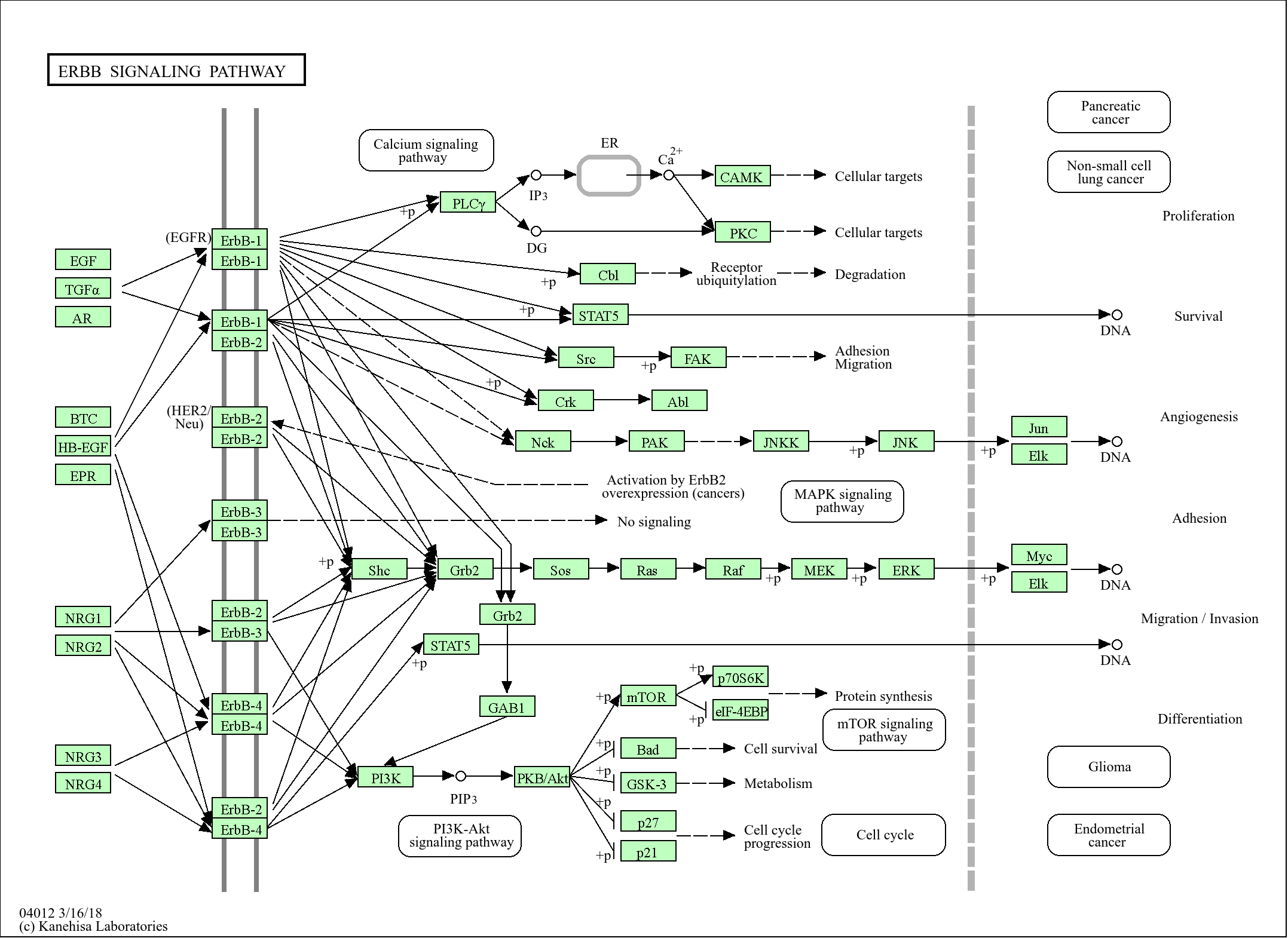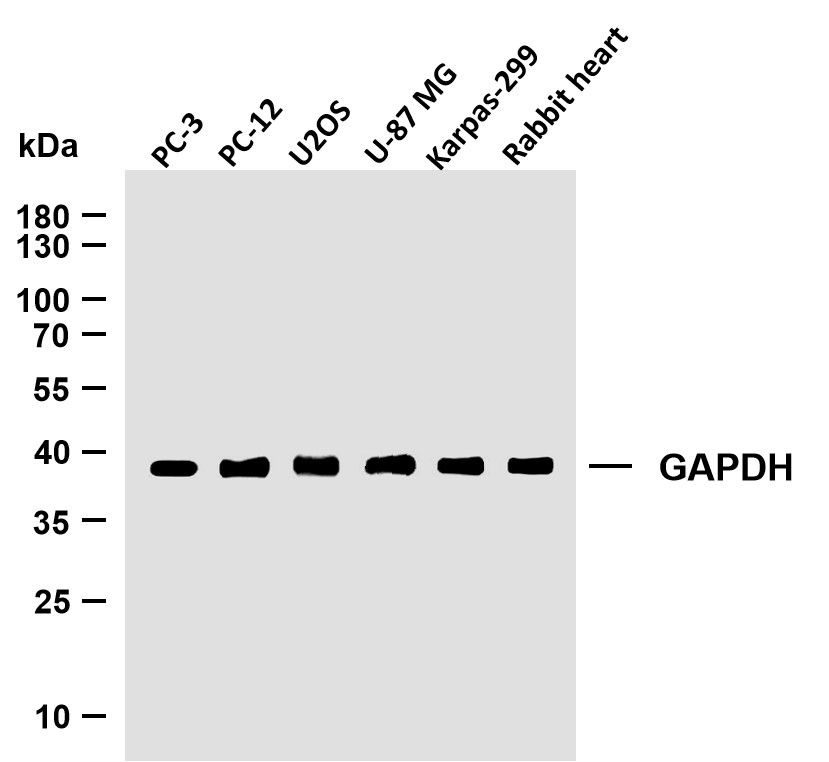
Catalog: YM0380
Size
Price
Status
Qty.
200μL
$600.00
3 weeks
0
100μL
$350.00
3 weeks
0
50μL
$210.00
3 weeks
0
Add to cart


Collected


Collect
Main Information
Target
IRAK-4
Host Species
Mouse
Reactivity
Human, Mouse, Monkey
Applications
WB, IHC, IF, FC, ELISA
MW
52kD (Calculated)
Conjugate/Modification
Unmodified
Detailed Information
Recommended Dilution Ratio
WB 1:500-1:2000; IHC 1:200-1:1000; Flow Cyt 1:200-1:400; ELISA 1:10000; IF 1:50-200
Formulation
Liquid in PBS containing 50% glycerol, 0.5% BSA and 0.02% sodium azide.
Specificity
IRAK-4 Monoclonal Antibody detects endogenous levels of IRAK-4 protein.
Purification
Affinity purification
Storage
-15°C to -25°C/1 year(Do not lower than -25°C)
MW(Calculated)
52kD
Modification
Unmodified
Clonality
Monoclonal
Related Products
Antigen&Target Information
Immunogen:
Purified recombinant fragment of human IRAK-4 expressed in E. Coli.
show all
Specificity:
IRAK-4 Monoclonal Antibody detects endogenous levels of IRAK-4 protein.
show all
Gene Name:
IRAK4
show all
Protein Name:
Interleukin-1 receptor-associated kinase 4
show all
Background:
This gene encodes a kinase that activates NF-kappaB in both the Toll-like receptor (TLR) and T-cell receptor (TCR) signaling pathways. The protein is essential for most innate immune responses. Mutations in this gene result in IRAK4 deficiency and recurrent invasive pneumococcal disease. Multiple transcript variants encoding different isoforms have been found for this gene. [provided by RefSeq, Aug 2011],
show all
Function:
Catalytic activity:ATP + a protein = ADP + a phosphoprotein.,cofactor:Magnesium.,Disease:Defects in IRAK4 are the cause of IRAK4 deficiency [MIM:607676]. IRAK4 deficiency causes extracellular pyogenic bacterial and fungal infections in otherwise healthy children.,Disease:Defects in IRAK4 are the cause of recurrent isolated invasive pneumococcal disease type 1 (IPD1) [MIM:610799]. Recurrent invasive pneumococcal disease (IPD) is defined as two episodes of IPD occurring at least 1 month apart, whether caused by the same or different serotypes or strains. Recurrent IPD occurs in at least 2% of patients in most series, making IPD the most important known risk factor for subsequent IPD.,Function:Required for the efficient recruitment of IRAK1 to the IL-1 receptor complex following IL-1 engagement, triggering intracellular signaling cascades leading to transcriptional up-regulation and mRNA stabilization. Phosphorylates IRAK1.,online information:IRAK4 mutation db,similarity:Belongs to the protein kinase superfamily. TKL Ser/Thr protein kinase family. Pelle subfamily.,similarity:Contains 1 death domain.,similarity:Contains 1 protein kinase domain.,subunit:IL-1 stimulation leads to the formation of a signaling complex which dissociates from the IL-1 receptor following the binding of PELI1. Interacts with IL1RL1.,
show all
Cellular Localization:
extracellular space,intracellular,nucleus,cytoplasm,cytosol,plasma membrane,endosome membrane,
show all
Tissue Expression:
Brain,Spleen,Uterus,
show all
Signaling Pathway
Organismal Systems >> Immune system >> Toll-like receptor signaling pathway
Organismal Systems >> Immune system >> NOD-like receptor signaling pathway
Organismal Systems >> Nervous system >> Neurotrophin signaling pathway
Environmental Information Processing >> Signal transduction >> MAPK signaling pathway
Environmental Information Processing >> Signal transduction >> NF-kappa B signaling pathway
Reference Citation({{totalcount}})
Catalog: YM0380
Size
Price
Status
Qty.
200μL
$600.00
3 weeks
0
100μL
$350.00
3 weeks
0
50μL
$210.00
3 weeks
0
Add to cart


Collected


Collect
Recently Viewed Products
Clear allPRODUCTS
CUSTOMIZED
ABOUT US
Toggle night Mode
{{pinfoXq.title || ''}}
Catalog: {{pinfoXq.catalog || ''}}
Filter:
All
{{item.name}}
{{pinfo.title}}
-{{pinfo.catalog}}
Main Information
Target
{{pinfo.target}}
Reactivity
{{pinfo.react}}
Applications
{{pinfo.applicat}}
Conjugate/Modification
{{pinfo.coupling}}/{{pinfo.modific}}
MW (kDa)
{{pinfo.mwcalc}}
Host Species
{{pinfo.hostspec}}
Isotype
{{pinfo.isotype}}
Product {{index}}/{{pcount}}
Prev
Next
{{pvTitle}}
Scroll wheel zooms the picture
{{pvDescr}}


















